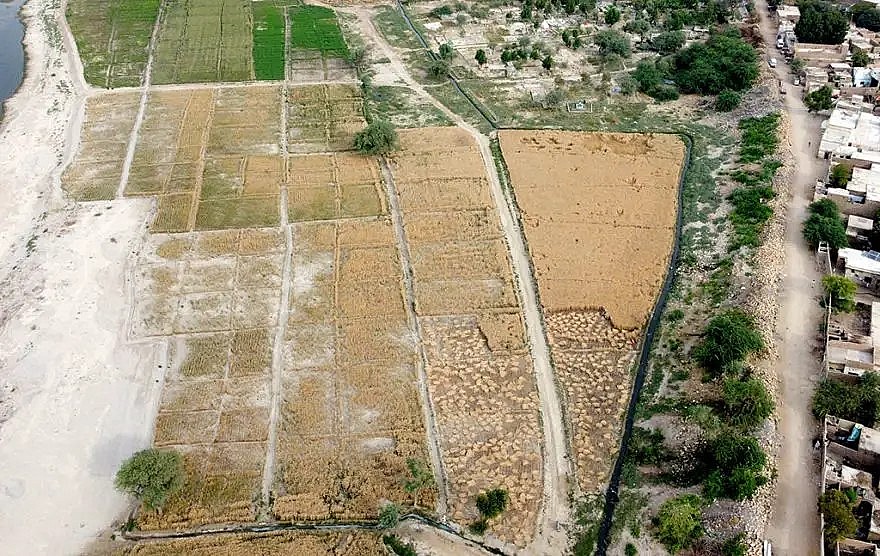Military Clashes Spark Food Shortage Concerns Amid Water Crisis in Pakistan
 |
As fears of a prolonged conflict grow, many residents in urban centers such as Lahore have begun stockpiling essential items, including food, medicine, and household goods, according to the Khaama Press.
“People in Lahore have started stocking medicines as well, which may lead to shortages of paracetamol, anti-allergies, antibiotics, and medicines for chronic conditions like blood pressure and diabetes,” said Muhammad Asif, a local resident.
Wheat, a dietary staple in Pakistan, has seen significant price increases in recent months due to persistent inflation. The current conflict has further exacerbated this trend. According to the Grocery Merchants Association, the price of a 30-kg bag of wheat flour rose by PKR 130 in just two weeks. Similar increases have been reported across other essential commodities such as chicken, eggs, sugar, meat, and pulses, with chicken prices seeing the sharpest rise at approximately 10%.
Experts warn that continued hostilities could severely strain Pakistan’s agriculture sector, a critical pillar of the national economy that employs nearly 40% of the labor force. “India’s suspension of the 1960 Indus Waters Treaty sends a destabilizing signal,” said Yousuf Nazar, a former Citigroup executive and author. “Combined with ongoing political instability and the lingering effects of the 2022 floods, Pakistan is ill-prepared for another major shock. A single crisis could trigger economic collapse and mass suffering.”
The Indus River System Authority has reported a 21% decline in water availability from the River Chenab, warning of further reductions during the early Kharif season—an essential period for sowing key summer crops such as cotton, rice, and sugarcane. The water shortage comes amid already challenging climatic conditions and reduced reservoir levels at Tarbela and Mangla dams.
According to estimates from the Pakistan Agricultural Research Council, wheat yields declined by 13% this year, necessitating increased imports to meet domestic demand. The Council had previously projected a 20% drop in wheat output due to insufficient water storage capacity.
“India’s recent shift in stance on the Indus Water Treaty, coupled with Pakistan’s slow progress on new irrigation infrastructure, has intensified the crisis,” said Ehtasham Ali, an independent researcher affiliated with the University of the Punjab.
The fear of a looming food shortage has led many Pakistani households to prepare for disruptions. “I have stocked groceries for a month—we got meat, flour, tea, oil, lentils, and even withdrew extra cash from the bank,” said Aroosha Rameez, a resident of Lahore. In response, the Pakistani government has issued assurances to maintain the supply of essential goods and is reportedly implementing emergency strategies to discourage panic buying and stabilize local markets.
Despite a recent dip in inflation during April 2025, Pakistan’s broader macroeconomic environment remains fragile. Analysts believe the current geopolitical tensions could place renewed stress on the economy. “Any further disruption from reduced Indus water flows could trigger sharp declines in output and lead to escalating food inflation just as the country begins to recover,” said Dr. Hafiz Muhammad Usman Rana, senior lecturer at Birmingham City University.
The World Bank has warned that up to 10 million Pakistanis could face acute food insecurity this year. This puts additional pressure on agricultural production, rural livelihoods, and the country’s ability to ensure a sufficient food supply. In this context, conflict-related disruptions risk undermining national food security.
